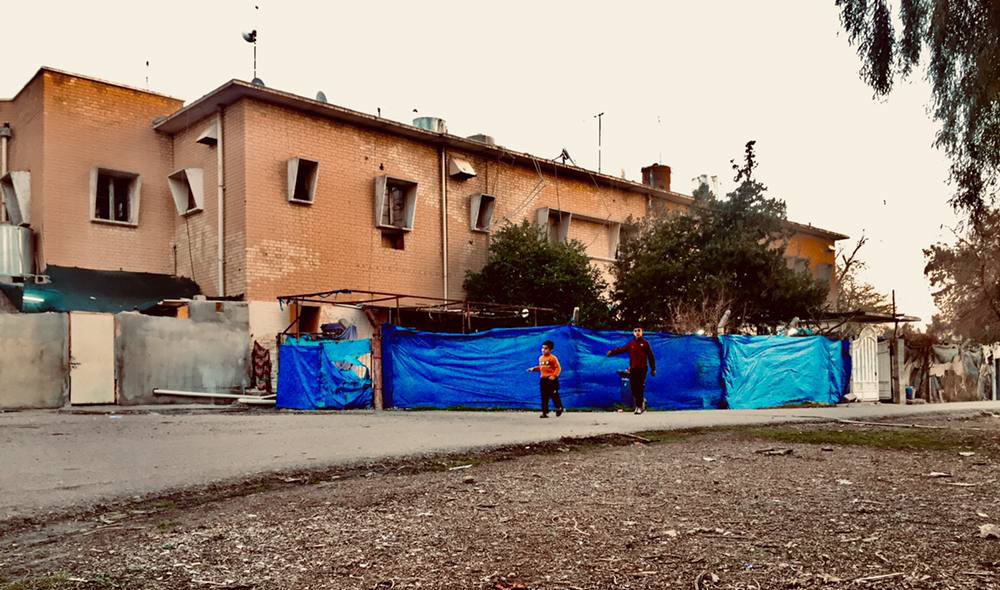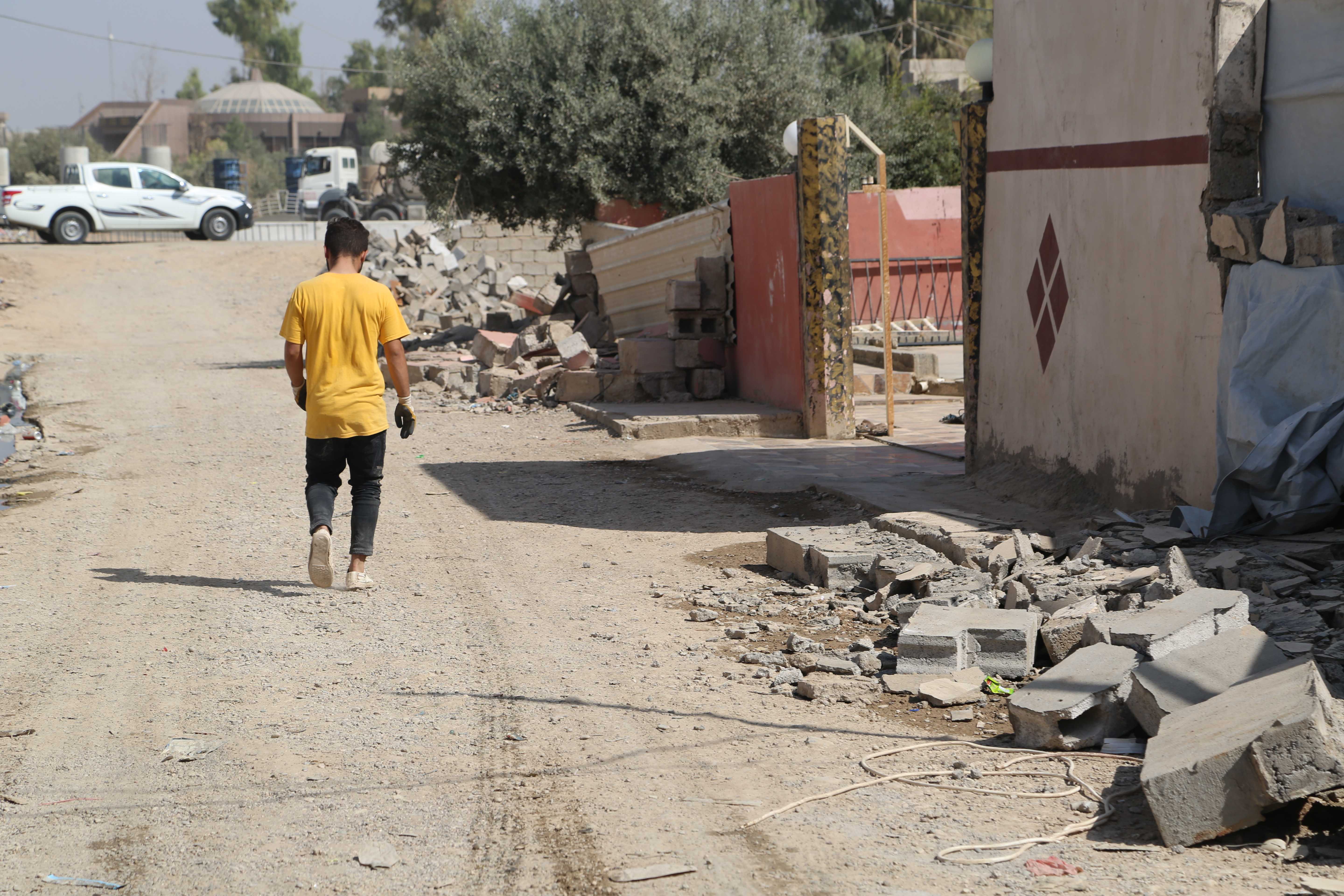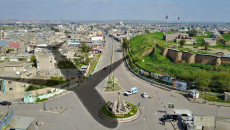Two Iraqi ministers of the key Kurdish political parties have appointed a committee to register illegal houses in Kirkuk.
On January 13, the Iraqi Council of Ministers decided to register all illegal houses in Iraqi provinces, except Kirkuk. This decision has raised concerns among Kirkuk citizens and some political parties, particularly the Patriotic Union of Kurdistan (PUK) and the Kurdistan Democratic Party (KDP), the only two Kurdish parties involved in the Iraqi government.
Ahmad Khalil, a Kurd residing in an unregistered house in Kirkuk, expressed his surprise upon learning that only illegal houses in Kirkuk are not being registered.
He questioned why the people of Kirkuk are being deprived and why their rights are being neglected.
"They are only concerned with economic matters, such as oil partnerships," he added.
This decision indicates that the ruling Kurdish parties do not have the best interests of the people of Kirkuk at heart.
The Kurds are the primary losers in this decision
Omed Mohammed, a Kirkuki representative in the Iraqi parliament, stated, "The Kurds are the primary losers in this decision, as most of the unregistered neighborhoods are Kurdish."
He emphasized that since only the PUK and KDP are part of the government and the decision was made by the Council of Ministers, representing the Kurds, they should have shown more concern for Kirkuk.
According to statistics from the Kirkuk municipality, there are approximately 90,000 unregistered houses in Kirkuk, with the majority being occupied by Kurds.
The majority of these houses were constructed in 2003 when the Kirkuk administration allocated land to families displaced by the Ba'ath regime's policies, who later returned to their hometowns after the regime's fall.
Despite accusing the PUK and KDP of neglecting the decision, some citizens, like Khalil, believe that the people of Kirkuk have become victims of the conflict between the two Iraqi governments and the Kurdistan Region.
The decision was made by the General Secretariat of the Council of Ministers, entrusting two Kurdish ministers, Bangin Rekani, Minister of Reconstruction, Housing, and Municipalities representing the KDP, and Khalid Shiwani, Minister of Justice representing the PUK.
The letter did not specify the request of the two Kurdish ministers but stated, "Based on their proposal, the formation of a committee to investigate the land situation within the basic map of Kirkuk has been approved to establish a mechanism for its treatment."
The committee is expected to present its recommendations to the General Secretariat of the Council of Ministers within 90 days for inclusion in the Council of Ministers' agenda.
The northern, oil-rich, ethnically mixed province of Kirkuk is home to about 1,77 million Kurds, Turkmen, and Arabs. Located 238 kilometers north of Baghdad, Kirkuk has long been at the center of disputes between the federal government in Baghdad and the Erbil-based Kurdistan Regional Government KRG.
On November 28, 2022, the Iraqi Council of Ministers made another decision to register all illegal houses in Iraq, including Kirkuk. However, the process was halted without providing any explanation after the Kirkuk municipality received about 90,000 registration applications.
Faraidun Adel, the former director of the Kirkuk municipality, revealed that most applications came from Kurdish areas, with approximately 70% originating from Kurdish neighborhoods.
Adnan Shukur, the spokesman for the Kirkuk municipality, mentioned that with the forms of around 90,000 residents for registering illegal houses, they can finalize the procedures promptly upon receiving any decision from the Council of Ministers.

A number of illegal houses in the neighborhood of Musayja Arafat that have been requested several times to be vacated to be demolished, Kirkuk, December 2022. KirkukNow
According to the Kirkuk administration's statistics, the province ranks third after Baghdad and Basra in terms of the number of illegal houses, with over 130,000 illegal houses in Baghdad and over 90,000 in Basra.
The PUK and KDP, as members of the Council of Ministers, are associated with this decision. Therefore, they should be prepared to provide an explanation to the public.
"Why is the decision applicable to the entire Iraq except for Kirkuk?" Khalil questioned, a query that the Council of Ministers and the ministers from the PUK and KDP have yet to address. KirkukNow was unable to obtain the opinions of the two Kurdish ministers through their offices.
Ahmad Kirkuki, a member of the Iraqi parliament, stated, "Any decision to halt the registration of houses in Kirkuk is detrimental and not in the best interest of the people of Kirkuk, especially the Kurdish population."
He further mentioned that a committee from Baghdad is scheduled to visit Kirkuk to assess the neighborhoods built after 2003.
"If the PUK and KDP truly cared about the people and the land of Kirkuk, they should have resigned after the decision was made. This is a significant failure to reach such a decision while having a Kurdish governor and ministers," Omed Mohammed added.
Fayeq Abdulkarim, a resident of an unregistered neighborhood in Kirkuk who applied for house registration in 2022, criticized the decision as being against the people of Kirkuk, indicating that they are being oppressed.
"The decision is against the people of Kirkuk and we are being oppressed," he said, calling for Kirkuk to be treated like other provinces.






